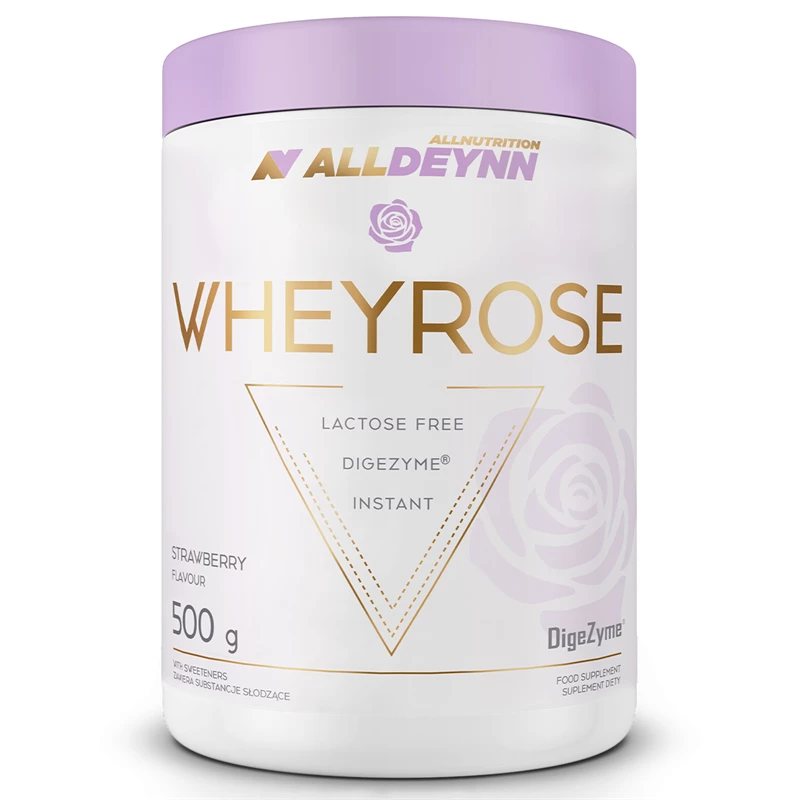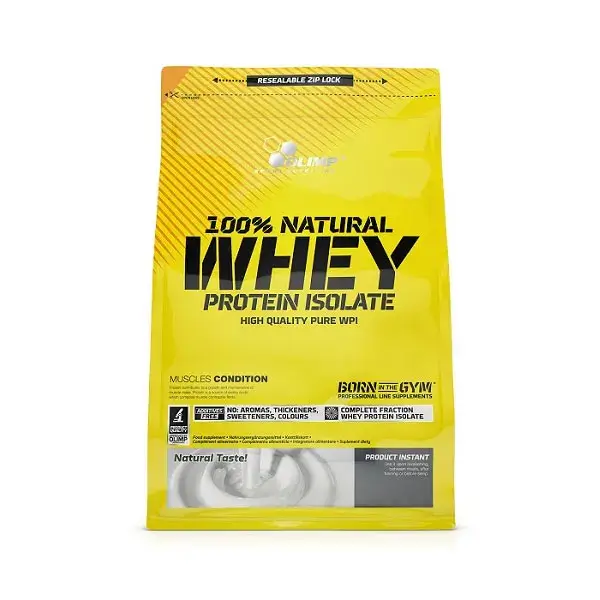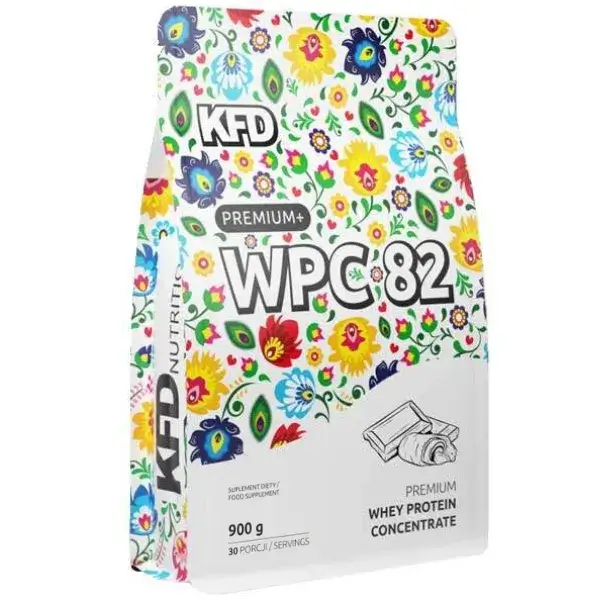Vegan protein, or plant-based protein supplements: what do they give and which ones to choose?
Vegan protein supplements add protein to the diets of athletes and non-athletes alike.


Learn more about our editorial process
.

Learn more about our editorial process
.

Learn more about our editorial process
.

Learn more about our editorial process
.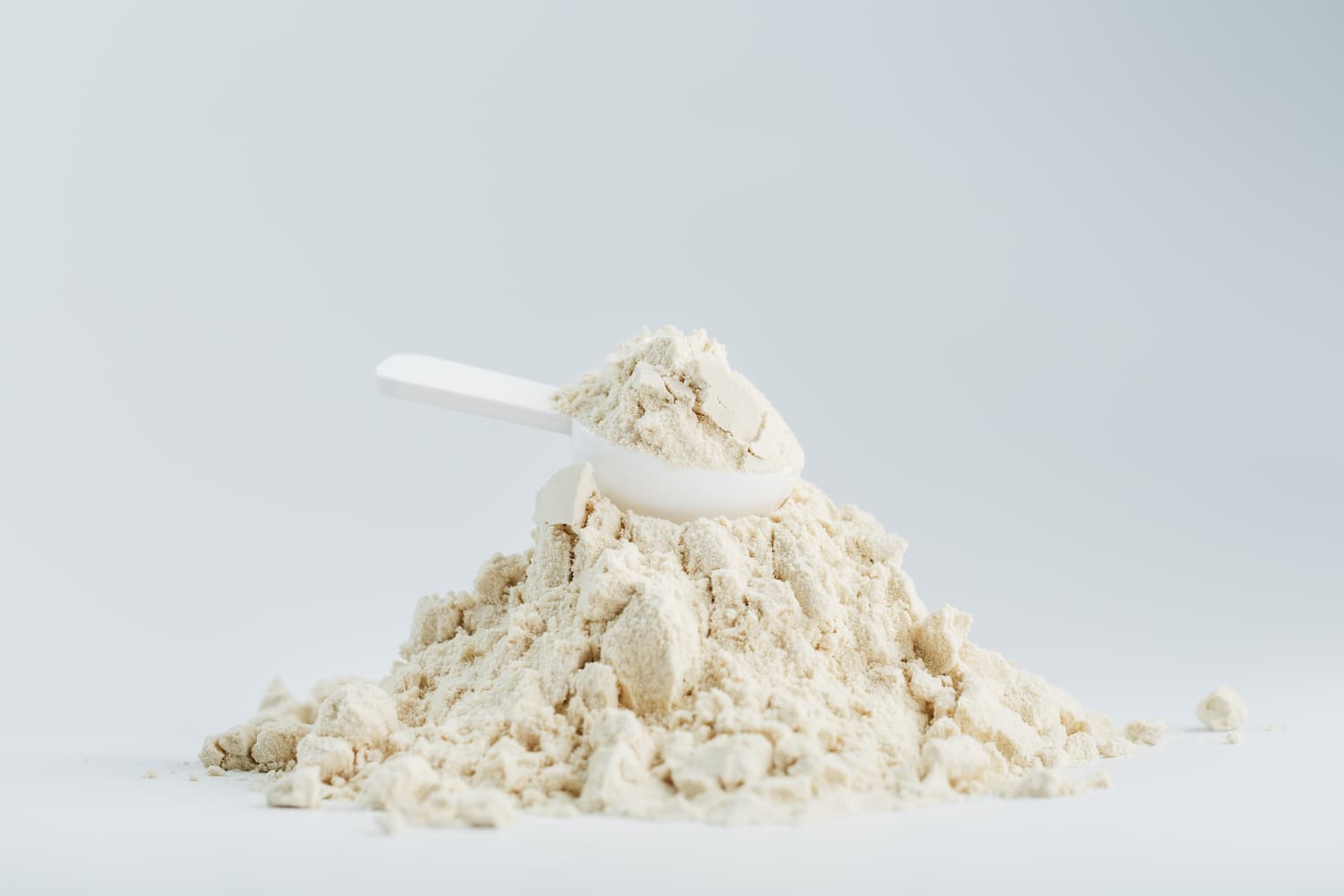
Why you can trust us
Articles on Natu.Care are written based on scientific research, data from government websites and other reliable sources. The texts are written in cooperation with doctors, nutritionists and other health and beauty experts. Articles are reviewed before publication and during significant updates.
.Learn more about our editorial process
.Information about advertisements
Content on Natu.Care may contain links to products from the sale of which we may receive a commission. When creating content, we adhere to high editorial standards and take care to be objective about the products discussed. The presence of affiliate links is not dictated by our partners, and we select the products we review ourselves completely independently.
.Learn more about our terms and Conditions
.Pssst. Want to buy a vegan protein supplement but you're not #govegan? Let me tell you a secret. Buy it. No one checks it out. You can enjoy its cool properties without remorse.
Vegan protein is an alternative to classic whey protein. It will work well if you avoid zoonotic proteins, have food intolerances or allergies, or just want to add an interesting flavour to your menu.
Wegan protein is a great alternative to the classic whey protein.
With nutritionist Kuba Pągowski, we will tell you, what to eat vegan nutritional supplements, whether it is true that soy protein 'kills masculinity' and how to choose a good product.
From this article you will learn:
- What is vegan protein.
- What is vegan protein?
- What vegan protein supplements provide. .
- Which vegan protein to choose. .
- What are the reviews of vegan protein. .
See also:
.- Protein nutrition
- Plant protein
- Whey protein isolate (WPI) .
- Whey protein concentrate (WPC) .
- Whey protein hydrolysate (WPH)
- How much protein a day?
- Protein before or after training? .
- Protein-rich foods .
Vegan protein - what is it?
.Vegan protein is a protein supplement that consists of 100% plant-based raw materials and is used to supplement proteins in the diet. Plant-based protein is an alternative for those who do not consume zoonotic products or are looking for variety in diet.
Vegan foods can be composed from a single plant source or be a mixture of several. Protein for vegans is most commonly derived from soya, peas, rice, hemp and yeast. There are 50-80g of protein in 100g of vegan nutritionand.
The most popular are so-called vegan mixes, which are blends of several plant sources. This is because a nutrient composed in this way provides all 9 essential amino acids.
Vegetable sources of protein such as legumes, nuts, seeds or cereals do not contain all the essential amino acids. This is why it is so important on a vegan diet to compose meals from a variety of ingredients.
What does a vegan diet offer?
What does a vegan protein supplement give you?
.Vegan protein supplements are replacements for the popular whey protein for people who do not consume or limit animal protein, want to add variety to their diet or have food intolerances.
The vegan protein supplements are a great way to get the most out of your diet.
Using vegan nutritional supplements offers many benefitsand:
.- .
- Provide protein. Protein is a key nutrient needed for muscle building, tissue repair, enzyme and hormone production, transport (e.g. of nutrients), energy delivery and is important for overall health and well-being.
- Rich in key nutrients. Many vegan protein supplements are also rich in important substances such as vitamins and minerals, fibre, which aids digestion, and phytonutrients that are valuable to health.
- Healthy alternative to animal protein. Vegan protein supplements are great for people who have allergies or intolerances to dairy ingredients such as whey protein or casein. .
- Beneficial for intestinal microflora. Scientific research suggests that plant-based proteins are more beneficial to the microbiota than animal-based proteins. .
- Easier digestion.Vegetable proteins digest more easily than dairy, which is important for people who have difficulty digesting dairy proteins such as whey and casein.
- Promote athletic performance and recovery. For those who train regularly, vegan protein supplements can support the body's ability to recover after intense training and help muscle tissue grow and repair faster.
- Promote weight management. Protein helps maintain a feeling of satiety, which can help with appetite control and weight management.
- Environmental benefits. The production of vegan protein tends to have a lower environmental impact compared to the production of zoonotic protein. This can help to reduce greenhouse gas emissions and protect the environment.
ALLDEYNN WHEYROSE
Product description
Protein supplement containing whey protein concentrate (WPC) with added digestive enzymesós. It digests well, is an easy and quick way to provide protein and can be consumed by people with lactose intolerance. It will work well not only as a stand-alone drinkóy but also as a tasty addition to shakesóy, dessertsóy, oatmeal or omeletóy.
WHEYROSE contains five digestive enzymes that help break down macromolecules into smaller components, so that the ingredients from food and the nutrient are absorbed even better. This minimises or even eliminates digestive discomfort. Such an addition is rare in protein supplements.
.Pros and cons
Protein supplement containing whey protein concentrate (WPC) with added digestive enzymesós. It digests well, is an easy and quick way to provide protein and can be consumed by people with lactose intolerance. It will work well not only as a stand-alone drinkóy but also as a tasty addition to shakesóy, dessertsóy, oatmeal or omeletóy.
WHEYROSE contains five digestive enzymes that help break down macromolecules into smaller components, so that the ingredients from food and the nutrient are absorbed even better. This minimises or even eliminates digestive discomfort. Such an addition is rare in protein supplements.
.Additional information
Protein supplement containing whey protein concentrate (WPC) with added digestive enzymesós. It digests well, is an easy and quick way to provide protein and can be consumed by people with lactose intolerance. It will work well not only as a stand-alone drinkóy but also as a tasty addition to shakesóy, dessertsóy, oatmeal or omeletóy.
WHEYROSE contains five digestive enzymes that help break down macromolecules into smaller components, so that the ingredients from food and the nutrient are absorbed even better. This minimises or even eliminates digestive discomfort. Such an addition is rare in protein supplements.
.User review
Protein supplement containing whey protein concentrate (WPC) with added digestive enzymesós. It digests well, is an easy and quick way to provide protein and can be consumed by people with lactose intolerance. It will work well not only as a stand-alone drinkóy but also as a tasty addition to shakesóy, dessertsóy, oatmeal or omeletóy.
WHEYROSE contains five digestive enzymes that help break down macromolecules into smaller components, so that the ingredients from food and the nutrient are absorbed even better. This minimises or even eliminates digestive discomfort. Such an addition is rare in protein supplements.
.ALLDEYNN VEGEROSE
Product description
A protein supplement made from five plant proteins enriched with acacia fibre, flaxseed, MCT oil and the probiotic-prebiotic complex LactoWise®. It is a synbiotic thatós stimulates the developmentóy and growth of beneficial bacteria in the gastrointestinal tract and shows a beneficial effect on the condition of the digestive system.
Pros and cons
A protein supplement made from five plant proteins enriched with acacia fibre, flaxseed, MCT oil and the probiotic-prebiotic complex LactoWise®. It is a synbiotic thatós stimulates the developmentóy and growth of beneficial bacteria in the gastrointestinal tract and shows a beneficial effect on the condition of the digestive system.
Additional information
A protein supplement made from five plant proteins enriched with acacia fibre, flaxseed, MCT oil and the probiotic-prebiotic complex LactoWise®. It is a synbiotic thatós stimulates the developmentóy and growth of beneficial bacteria in the gastrointestinal tract and shows a beneficial effect on the condition of the digestive system.
Expert opinion
A protein supplement made from five plant proteins enriched with acacia fibre, flaxseed, MCT oil and the probiotic-prebiotic complex LactoWise®. It is a synbiotic thatós stimulates the developmentóy and growth of beneficial bacteria in the gastrointestinal tract and shows a beneficial effect on the condition of the digestive system.
ALLDEYNN VEGEROSE
Product description
A protein supplement made from five plant proteins enriched with acacia fibre, flaxseed, MCT oil and the probiotic-prebiotic complex LactoWise®. It is a synbiotic thatós stimulates the developmentóy and growth of beneficial bacteria in the gastrointestinal tract and shows a beneficial effect on the condition of the digestive system.
Pros and cons
A protein supplement made from five plant proteins enriched with acacia fibre, flaxseed, MCT oil and the probiotic-prebiotic complex LactoWise®. It is a synbiotic thatós stimulates the developmentóy and growth of beneficial bacteria in the gastrointestinal tract and shows a beneficial effect on the condition of the digestive system.
Additional information
A protein supplement made from five plant proteins enriched with acacia fibre, flaxseed, MCT oil and the probiotic-prebiotic complex LactoWise®. It is a synbiotic thatós stimulates the developmentóy and growth of beneficial bacteria in the gastrointestinal tract and shows a beneficial effect on the condition of the digestive system.
Expert opinion
A protein supplement made from five plant proteins enriched with acacia fibre, flaxseed, MCT oil and the probiotic-prebiotic complex LactoWise®. It is a synbiotic thatós stimulates the developmentóy and growth of beneficial bacteria in the gastrointestinal tract and shows a beneficial effect on the condition of the digestive system.
Vegan protein - properties
.In the table below, you will read what the characteristics of vegan protein supplements areand.
.Most nutritional supplements have a specific, "earthy" aftertaste.
.|
Trait . |
Vegan protein . |
||
|
Protein content per 100 g dry weight |
50-80% |
||
|
Percentage of fats and carbohydrates per 100 g of powder |
Carbohydrates 5-20%, fats 2-15% |
||
|
Content of essential amino acids . |
Most plant-based protein supplements have a complete aminogram, i.e., all 9 essential amino acids. |
||
|
Biological value . |
Plant protein is less efficiently absorbed by the body compared to whey protein. |
||
|
Absorbability |
80-90% |
||
|
Fibre content |
High High |
||
|
Potential allergens |
Nuts, soya . |
||
|
Flavour |
Most nutritional supplements have a specific, "earthy" aftertaste, but many manufacturers are getting better and better at blending and flavouring. |
| Taste |
|
Usefulness in the kitchen |
Vegan powder does not "cooperate" badly in the kitchen. It is suitable as a substitute for flour (but you need to add more water), and it rises well in omelettes and pancakes. When added to semolina on water it thickens the liquid nicely. |
||
|
Price |
Prices range from £5.30/100g to as much as £20/100g |
What types of vegan protein supplements are there?
.Vegan protein nutrients can come from many plant-based sources. Here are some of the most popular types:
- Protein from peas. It is a great source of protein and amino acids (contains BCAA). It is rich in fibre and has a low glycaemic index. It can cause bloating in some people.
- Rice protein. Lightly digestible and does not cause allergies. Because of its low lysine content, it is often combined with pea protein to provide a full spectrum of amino acids.
- Hemp protein. It is one of the few plant sources of protein that contains all nine essential amino acids. It is also rich in healthy omega-3 fatty acids.
- Soy protein. A complete source of protein, it contains all essential amino acids. Soy is one of the more common food allergens, so some people may be allergic to it. .
- Beast protein. Rich in B vitamins, including B12. It is gentle on the digestive system and provides all the essential amino acids.
- Chia protein. Lightly digestible, rich in fibre and omega-3 fatty acids, Chia protein is rich in fibre and ALA acid (alpha-linolenic).
- Vegan mixes. These are blends of the above protein sources. Mixing different plant-based proteins results in a complete protein, rich in vitamins, minerals, phytonutrients and fibre.
Valuable phytonutrients
Phytonutrients are unique, biologically active compounds derived from plants. They can be beneficial to health as they have anti-inflammatory, immunomodulatory and antioxidant effects. Phytonutrients include flavonoids, carotenoids, phytosterols, polyphenols and sulphur compoundsand.
Does soy protein lower testosterone?
.No, soy protein doesn't lower testosterone and has no effect on the male hormone balance, as confirmed by many papers by researchersand. Arguably, this myth causes concern because the soy isoflavones contained in soya resemble female sex hormones in their structure (they are called phytoestrogens).
However, many scientific studies have found no effect of soy protein or soy isoflavones on testosterone and sex hormone-binding globulinsand. What's more, high soy intake can reduce the risk of prostate cancer by up to 30% .
However, everything in moderation - excessive amounts of soy in the diet can have adverse effectsand. It is recommended to consume up to 100 mg of soy isoflavones per day. In practice, this is, for example, 200 g tofu cubes + 0.5 l soy milk.
Tasteless vegan protein
.Some people do not like flavourings or a sweet aftertaste, so choose neutral-tasting vegan nutrients. Drinking them with liquid (e.g. water or a plant-based drink) is not excellent in taste, but adding the powder to various foods (e.g. smoothie, shake, omelette) makes it virtually undetectable.
Sugar-free vegan protein
.The addition of pure white sugar to protein supplements is now a rarity. Manufacturers are much more likely to choose other natural or artificial sweeteners such as:
- sugarose, .
- xylitol, .
- erythrol, .
- acesulfame-K, .
- steviol glycosides, .
The best and safest choice is steviol glycosides. Instead, be careful with sucralose consumption. Large amounts of it in the diet can adversely affect health. Research suggests that consumption of sucralose can lead to a leaky gut lining and increase the activity of genes associated with inflammation and cancerand.
A measure of protein nutrient sweetened with sucralose should do no harm. However, this sweetener is being included in more and more foods. It is particularly popular in puddings or protein bars.
Sucralose sweetener is a popular choice.
Vegan nutrition - disadvantages
.Before buying a vegan nutrient, it is worth knowing some of its disadvantages so that you are not disappointed.
- .
- Incomplete protein. Not all protein supplements provide your body with the complete set of essential amino acids. So you need to buy protein blends and read the composition carefully. .
- Worse digestibility. Vegetable protein is absorbed less well than animal proteinand. .
- Not suitable for food sensitivities. People with irritable bowel syndrome (IBS) must exercise caution due to the fibre content of the product, which can exacerbate unpleasant symptoms. .
- Effects on the digestive system. Some people may experience digestive problems such as bloating or gas, especially with pea protein.
- Not for allergy sufferers.People with allergies to soy or nuts (two of the eight most common food allergensand) need to choose their nutritional supplements more carefully.
- Taste and texture. Vegan nutrients are specific in taste, and adding them to food requires a sense of taste.
- Price. Plant protein is more expensive than classic whey protein nutrients. .
If you are taking levothyroxine - an ingredient in medicines such as Euthyrox and Letrox - remember to avoid soy products in the first two meals of the day if we are talking about a traditional diet. However, later in the day you do not have to give them up and, for example, for lunch they can boldly appear..
 .
.
Kuba Pągowski clinical dietitian
What should I choose
.Not sure if you'll swallow the taste of a vegan nutritional supplement or worried about bloating? Buy the product in sachets-testers of 30-35g. It's better to spend a few zlotys and see if it's right for you than to buy 1 kg of vegan protein that you won't use up.
Performance of vegan protein
.Vegetable protein is less digestible than zoonotic proteinand. According to scientific studies, the digestibility of plant proteins compared to animal proteins is 10-40% lower. This is because plant proteins are high in dietary fibre and phytic acid, which hinder the absorption of proteins in the bodyand.
An in vitro study from 2022 showed that more protein can be obtained from meat than from plant sources. Cooked pieces of plant products and chicken meat were 'broken down' using an enzyme that the body naturally uses to digest food. The digestibility of chicken meat protein after 2 hours was 33% higher than that of plant protein, but after 4 hours the difference had decreased to 21%and.
On a plant-based diet, it is crucial to compose meals appropriately to provide plenty of protein from a variety of sources. Vegan protein is not inferior - it just requires more nutritional awareness.
Does plant protein build muscle?
.Yes, by consuming plant protein from produce as well as from protein supplements you are supporting the building of muscle massand. The key is to provide yourself with plant-based protein from a variety of products to consume all the essential amino acids. Remember too that the key to muscle development is proper strength training.
Who is vegan nutrition for?
.Vegan nutrition is suitable for everyone, even if you have nothing to do with the ideology of veganism and eat meat regularly. Plant-based proteins add nice variety to your diet and provide valuable fibre and phytonutrients. For those on a meat-free diet, they will be a great alternative to provide the body with valuable protein.
Choose vegan protein if:
- .
- you are on a vegan or vegetarian diet, .
- you restrict zoonotic products, .
- you have an allergy to milk proteins, .
- you are lactose intolerant, .
- you are looking for variety in your diet, .
- you have trouble getting fibre from your diet, .
- you like to experiment in the kitchen - vege nutrients work well with cooking, .
- you are looking for eco-friendly alternatives - plant protein production is usually less harmful to the environment, .
How much protein do I need to eat?
.Your daily protein requirement depends on a number of factors such as age, health, lifestyle and physical activity. In simple terms, it is assumed that you should never eat less than 1g of protein per kg of body weight to avoid a deficiency (i.e. if you weigh 65kg, eat 65g throughout the day).
Requirement increases if you are physically active, for example, but it also depends on whether you are doing cardio training or want to build muscle mass - the requirement will be 1.6-2.2 g of protein per kg of body weight.
How calculate and adjust protein requirements you can read in my article:
What kind of vegan nutritional supplements should you choose?
Nutrition is not the same as nutrition. Let's not kid ourselves - manufacturers stand on their heads to reduce the characteristic earthy aftertaste in vegan powder and strive for ever more interesting flavours and textures. Sometimes at the expense that they increase the proportion sweeteners or thickeners in the formulation. Therefore, read the ingredients carefully.
What to look for when choosing a vegan protein?
. .Not to worry.
|
Factor . |
Comment |
|
Taste |
The nutrient is supposed to taste good to you. You want to drink it and add it to your meals with pleasure. However, after being on the market for several years, you will notice that some flavours will almost always be the right choice and others a disappointment. From my own experience and listening to others, I'll give you a hint - be careful with fruity and fancy flavours - the more fine the name, the worse the taste. To start with, it's better to buy a tester and see if pancake batter, banana with nut or latte with turmeric are your flavour preferences. In the dark, try the chocolate and vanilla flavours - the classics. Try the chocolate and vanilla flavours. |
|
Macronutrients . |
The protein content of a serving of vegan nutrition can vary from 15 g to 30 g. Optimally, there should be 20-25 g of protein in each meal. Pay attention to the amino acid content - choose products that have all of them. |
|
Sweeteners . |
Pure sugar is rare, but sucralose takes the lead, which in excessive quantities can have adverse effects on, among other things, the intestinal microbiota. While one scoop of conditioner a day shouldn't raise hell in the digestive system, unfortunately this sweetener is found in more and more products - it's hard to control. Choose nutrients sweetened with steviol glycosides or xylitol. . |
|
Friendly supplements . |
Some manufacturers make a nod to vegans and vegetarians, who, because they give up meat and animal products, are at risk of deficiencies in, among other things, B vitamins, calcium or iron. They therefore enrich their products with various vitamins and minerals. |
|
Neutral supplements . |
Natural colours, preservatives and flavourings are unnecessary for you. After all, you want to provide yourself with something of value. Read the ingredients carefully and check what they mean. |
|
Laboratory tests . |
When you visit the e-store, look for the lab results tab, which checks the purity of the formulation and confirms its content in the protein nutrient. |
Vegan mixes, i.e. a mixture of different sources of plant-based protein, are tastier and, most importantly, have all the essential amino acids.
.. .
Kuba Pągowski clinical dietitian
How to use a vegan nutritional supplement
.Vegan protein supplement should be used according to the manufacturer's instructions on the packaging. This is usually 1-3 scoops per day, and each provides approximately 20g of protein per serving. Do not exceed the recommendations as you may end up with stomach problems.
Remember that protein supplements are a nice addition to your menu. Sometimes you don't have time for a full meal or you don't want to count how much protein you eat, but you want to have a clear conscience. However, protein is best provided from protein-rich foods, and treat nutrition as a supplement.
Vegan protein supplement recipes
.Vegan protein powder is cool cooperates in the kitchen. See how you can use it in a variety of ways.
Vege dessert
.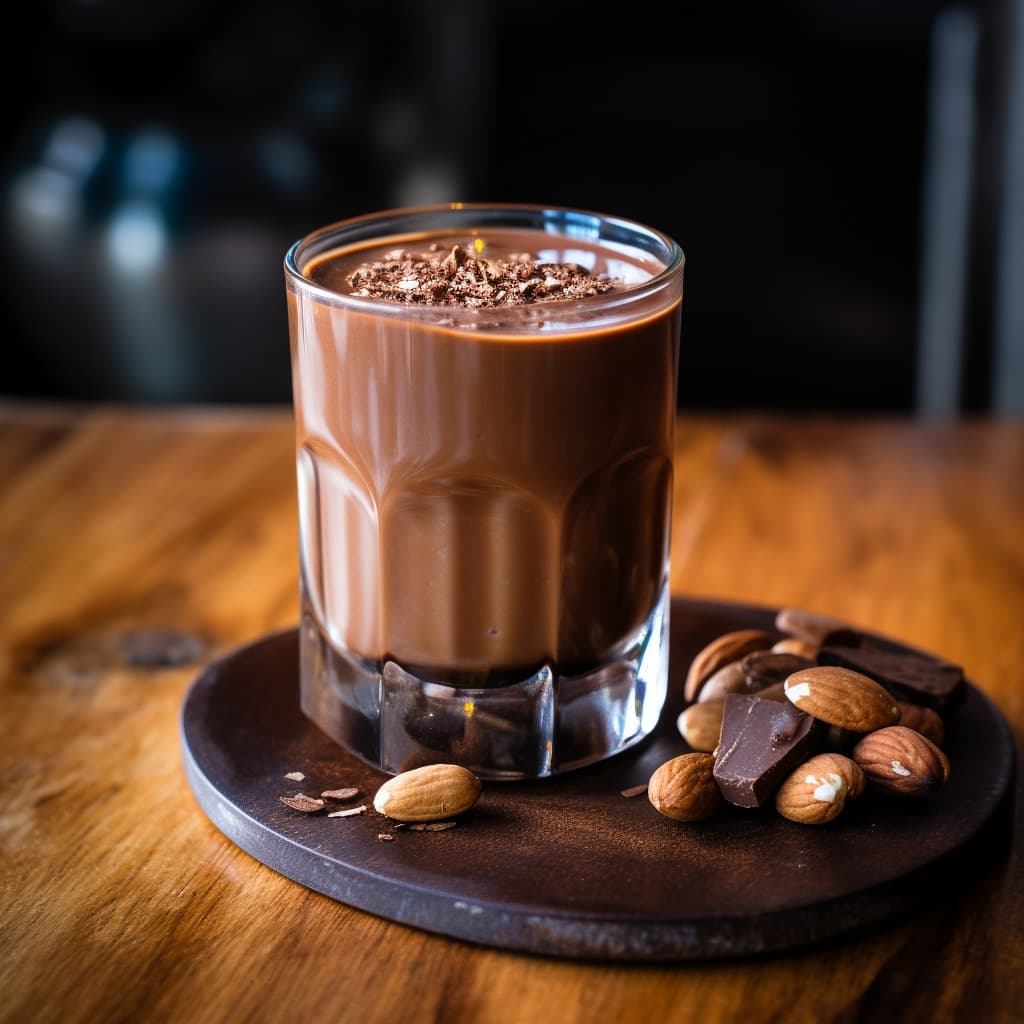
Ingredients for 2 servings:
.- banana 100 g .
- vegetable drink 200 g .
- vegan protein supplement 35 g (chocolate in my case)
- vegan protein supplement 35 g .
- peanut butter 15 g .
- cube of dark chocolate .
Making
- Blend all the ingredients except the chocolate .
- Pour the mixture into a glass. .
- Decorate with grated chocolate. .
The whole thing has 411 kcal, 33 g protein, 14 g fat, 38 g carbohydrate. One serving will provide you with 205 kcal, 16.5 g of protein, 7 g of fats, 19 carbohydrates.
Brownie with raspberries vegan
.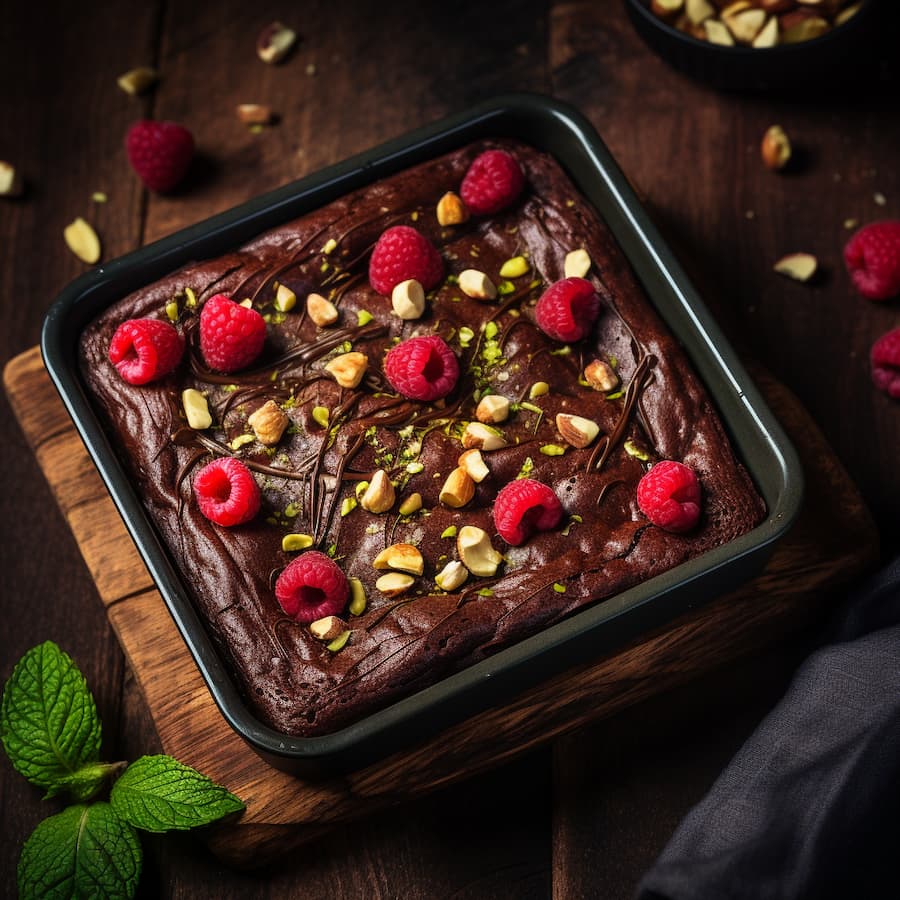
Ingredients for a 20 cm x 20 cm baking tin, 4 portions
.- ripe bananas 2 pieces, or 210 g after peeling .
- peanut butter approx. 125 g .
- cacao 40 g .
- vegan protein supplement 20 g chocolate flavour .
- raspberries and favourite nuts to decorate - as desired .
Making:
- Set the oven to 190 degrees without the thermoblock.
- Prepare the bake.
- Blend together all the ingredients except the raspberries and nuts.
- Blend together all the ingredients.
- Pour the mixture into the dish. .
- Place raspberries and nuts on top. .
- Place in the preheated oven for 25 minutes. .
A whole brownie with raspberries has 1300 kcal, 60 g protein, 73 g fat, 96 g carbohydrates.
One serving has 325 kcal, 15 g of protein, 18.25 g of fats and 24 g of carbohydrates.
Creamy semolina, perfect after a workout
.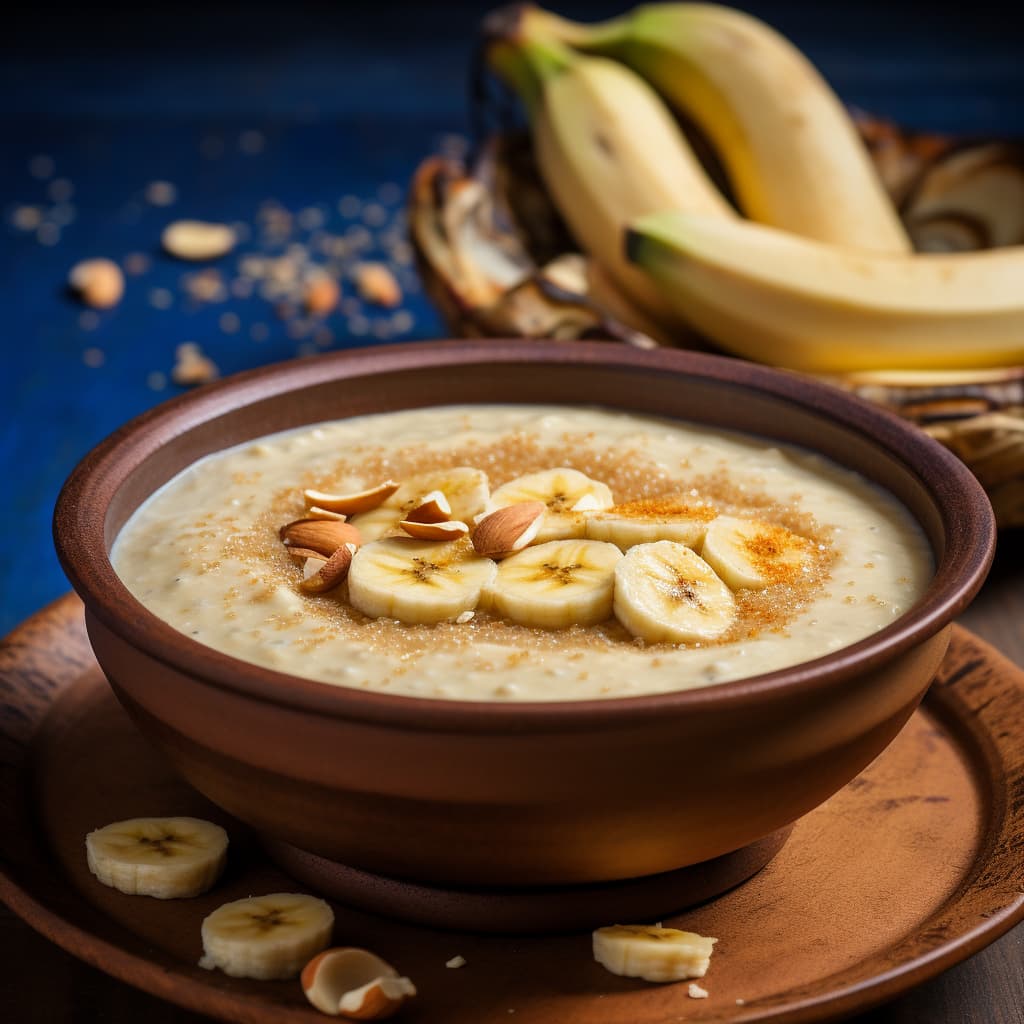
Ingredients per 1 serving
.- whole meal 50 g .
- vegetable drink 350 g .
- vegan protein supplement 20 g (in my case vanilla) .
- banana 80 g .
- favourite nuts 10 g .
- cinnamon - as desired .
Making:
- Pour the vegetable drink into the pot, add the porridge and protein nutrient.
- Pour the vegetable drink into the pot, add the porridge and protein nutrient.
- Cook slowly, stirring all the time.
- When the mixture starts to thicken, add the semolina.
- When the mixture starts to thicken, remove the pot from the burner. .
- Pour into a bowl and top with the toppings. .
A serving will provide you with 480 kcal, 30g of protein, 10g of fat, 68 carbohydrates.
See also other interesting articles:
.- Whey protein concentrate (WPC) .
- Whey protein isolate (WPI) .
- Whey protein hydrolysate (WPH)
- Omega-3 in the diet of athletes
- Protein nutrition
- Collagen for athletes
- Protein nutrient
- Plant protein
- Casein
- Creatine
- Arginine
- Citrulline
Summary
.- Vegan Protein is a protein supplement that is made up of 100% plant-based raw materials.
- It is a good alternative to the popular whey protein. .
- It will work well for vegans, people restricting zoonotic products, people with intolerances or allergies to whey protein and lactose.
- Vegetable protein does not assimilate as well as zoonotic protein, but with a varied diet and covering our protein requirements from a variety of sources, we should not be concerned about this.
- Vegan protein also provides phytonutrients, e.g. soy isoflavones (they have a major impact on cancer prevention), vitamins, minerals and fibre. .
- Vegan powder is suitable for a variety of recipes, but has a distinctive aftertaste on its own. .
FAQ
.What is the difference between vegan protein and regular protein?
.Vegan protein comes from plant sources, such as peas, rice, hemp or quinoa, whereas 'regular' protein most often refers to animal protein, such as whey or egg protein. Plant-based proteins may be more accessible to those with allergies or intolerances.
Is it possible to build muscle on plant protein?
.Yes, you can build muscle on plant protein. It is important to consume adequate protein and all the necessary amino acids, which is also possible on plant-based diets.
What is the best vegan protein to choose?
.Choosing a vegan protein depends on individual preference. Choose a protein that is easily digestible, contains the full spectrum of amino acids and has as few unnecessary additives as possible. Powders sweetened with steviol glycosides are recommended, as this is the safest sweetener.
What are the benefits of plant protein?
.Plant protein provides key proteins and amino acids for health, which are used to build muscle, produce enzymes and hormones and repair tissues. Plant proteins are also a source of valuable fibre, which many people lack in their diets.
Is yeast protein healthy?
.Yes, yeast protein is healthy because it is rich in fibre and also contains many B vitamins. It is lightly digestible, non-irritating to the digestive system and a great complement to protein in diet.
What is yeast protein Saccharomyces cerevisiae?
.Saccharomyces cerevisiae is a species of yeast used to produce yeast protein. They are used in the production of plant-based protein nutrients. They are a great source of protein, fibre and vitamins, including B1, B2, B3, B5, B6, folic acid and B12.
What reviews does Foods by Ann's vegan protein have?
.The Foods by Ann vegan protein from Anna Lewandowska has positive feedback from customers. This protein contains 21g protein per serving and has no added sugar, anti-caking agents or thickeners. The pack contains approximately 15 servings.
What are vegan protein supplements?
.There is a wide range of vegan protein nutrients on the market. Popular products offering plant-based protein include Allnutrition Vegan Protein, BioTech USA Vegan Protein, KFD vegan protein, Foods by Ann protein, Olimp vegan protein. Manufacturers offer a variety of blends, including tasteless, sugar-free or soy-free protein, so that everyone can find a product for themselves.
Where to buy vegan proteins
.You can buy vegan supplements stationary even in chain shops like Biedronka or Lidl, health food shops and nutritional manufacturers' outlets. There is also a huge choice in online shops.
.Sources
.See all
.Ahmad, S. Y., Friel, J. K., & Mackay, D. S. (2020). Effect of sucralose and aspartame on glucose metabolism and gut hormones. Nutrition Reviews, 78(9), 725-746. https://doi.org/10.1093/nutrit/nuz099
Berrazaga, I., Micard, V., Gueugneau, M., & Walrand, S. (2019). The Role of the Anabolic Properties of Plant- versus Animal-Based Protein Sources in Supporting Muscle Mass Maintenance: A Critical Review. Nutrients, 11(8), 1825. https://doi.org/10.3390/nu11081825
Carbonaro, M., Maselli, P., & Nucara, A. (2012). Relationship between digestibility and secondary structure of raw and thermally treated legume proteins: A Fourier transform infrared (FT-IR) spectroscopic study. Amino Acids, 43(2), 911-921. https://doi.org/10.1007/s00726-011-1151-4
Chen, D., Rocha-Mendoza, D., Shan, S., Smith, Z., García-Cano, I., Prost, J., Jimenez-Flores, R., & Campanella, O. (2022). Characterization and Cellular Uptake of Peptides Derived from In Vitro Digestion of Meat Analogues Produced by a Sustainable Extrusion Process. Journal of Agricultural and Food Chemistry, 70(26), 8124-8133. https://doi.org/10.1021/acs.jafc.2c01711
Clem, J., & Barthel, B. (2021). A Look at Plant-Based Diets. Missouri Medicine, 118(3), 233-238.
Hamilton-Reeves, J. M., Vazquez, G., Duval, S. J., Phipps, W. R., Kurzer, M. S., & Messina, M. J. (2010). Clinical studies show no effects of soy protein or isoflavones on reproductive hormones in men: Results of a meta-analysis. Fertility and Sterility, 94(3), 997-1007. https://doi.org/10.1016/j.fertnstert.2009.04.038
Huang, J., Liao, L. M., Weinstein, S. J., Sinha, R., Graubard, B. I., & Albanes, D. (2020). Association Between Plant and Animal Protein Intake and Overall and Cause-Specific Mortality. JAMA Internal Medicine, 180(9), 1173-1184. https://doi.org/10.1001/jamainternmed.2020.2790
Jd, B., Rl, T., Am, C., Pr, H., Mo, D., & Mk, R. (2010). Supplementation with a whey protein hydrolysate enhances recovery of muscle force-generating capacity following eccentric exercise. Journal of Science and Medicine in Sport, 13(1). https://doi.org/10.1016/j.jsams.2008.06.007
Komorowski, J., Ojalvo, S. P., Sylla, S., Cicek, D., Demir, B., Orhan, C., Tuzcu, M., Sahin, N., & Sahin, K. (2019). The Effect of a Combination of an Arginine Silicate Complex and Magnesium Biotinate on Hair and Nail Growth in Rats (P06-026-19). Current Developments in Nutrition, 3(Suppl 1), nzz031.P06-026-19. https://doi.org/10.1093/cdn/nzz031.P06-026-19
Ma, B., Ej, S., & G, H. (2018). Whey protein hydrolysate supplementation accelerates recovery from exercise-induced muscle damage in females. Applied Physiology, Nutrition, and Metabolism = Physiologie Appliquee, Nutrition et Metabolisme, 43(4). https://doi.org/10.1139/apnm-2017-0412
Morgan, P. T., & Breen, L. (2021). The role of protein hydrolysates for exercise-induced skeletal muscle recovery and adaptation: A current perspective. Nutrition & Metabolism, 18(1), 44. https://doi.org/10.1186/s12986-021-00574-z
Naclerio, F., & Larumbe-Zabala, E. (2016). Effects of Whey Protein Alone or as Part of a Multi-ingredient Formulation on Strength, Fat-Free Mass, or Lean Body Mass in Resistance-Trained Individuals: A Meta-analysis. Sports Medicine (Auckland, N.Z.), 46(1), 125–137. https://doi.org/10.1007/s40279-015-0403-y
Naghshi, S., Sadeghi, O., Willett, W. C., & Esmaillzadeh, A. (2020). Dietary intake of total, animal, and plant proteins and risk of all cause, cardiovascular, and cancer mortality: Systematic review and dose-response meta-analysis of prospective cohort studies. The BMJ, 370, m2412. https://doi.org/10.1136/bmj.m2412
National Research Council (US) Subcommittee on the Tenth Edition of the Recommended Dietary Allowances. (1989). Recommended Dietary Allowances: 10th Edition. National Academies Press (US). http://www.ncbi.nlm.nih.gov/books/NBK234932/
Santos-Hernández, M., Alfieri, F., Gallo, V., Miralles, B., Masi, P., Romano, A., Ferranti, P., & Recio, I. (2020). Compared digestibility of plant protein isolates by using the INFOGEST digestion protocol. Food Research International (Ottawa, Ont.), 137, 109708. https://doi.org/10.1016/j.foodres.2020.109708
Schoenfeld, B. J., & Aragon, A. A. (2018). How much protein can the body use in a single meal for muscle-building? Implications for daily protein distribution. Journal of the International Society of Sports Nutrition, 15, 10. https://doi.org/10.1186/s12970-018-0215-1
T, M., Cr, B., B, V., Cs, F., K, N., C, S., E, V., & Bb, R. (2019). Whey Protein Hydrolysate Increases Amino Acid Uptake, mTORC1 Signaling, and Protein Synthesis in Skeletal Muscle of Healthy Young Men in a Randomized Crossover Trial. The Journal of Nutrition, 149(7). https://doi.org/10.1093/jn/nxz053
Santos-Hernández, M., Alfieri, F., Gallo, V., Miralles, B., Masi, P., Romano, A., Ferranti, P., & Recio, I. (2020). Compared digestibility of plant protein isolates by using the INFOGEST digestion protocol. Food Research International (Ottawa, Ont.), 137, 109708. https://doi.org/10.1016/j.foodres.2020.109708
Schiffman, S. S., Scholl, E. H., Furey, T. S., & Nagle, H. T. (2023). Toxicological and pharmacokinetic properties of sucralose-6-acetate and its parent sucralose: In vitro screening assays. Journal of Toxicology and Environmental Health, Part B, 26(6), 307-341. https://doi.org/10.1080/10937404.2023.2213903
.Editorials
Meet the team



Look after the protein in your diet whether you are on a weight gain, weight reduction or weight maintenance.

Methionine is a little-known amino acid that is responsible for many functions in the body.
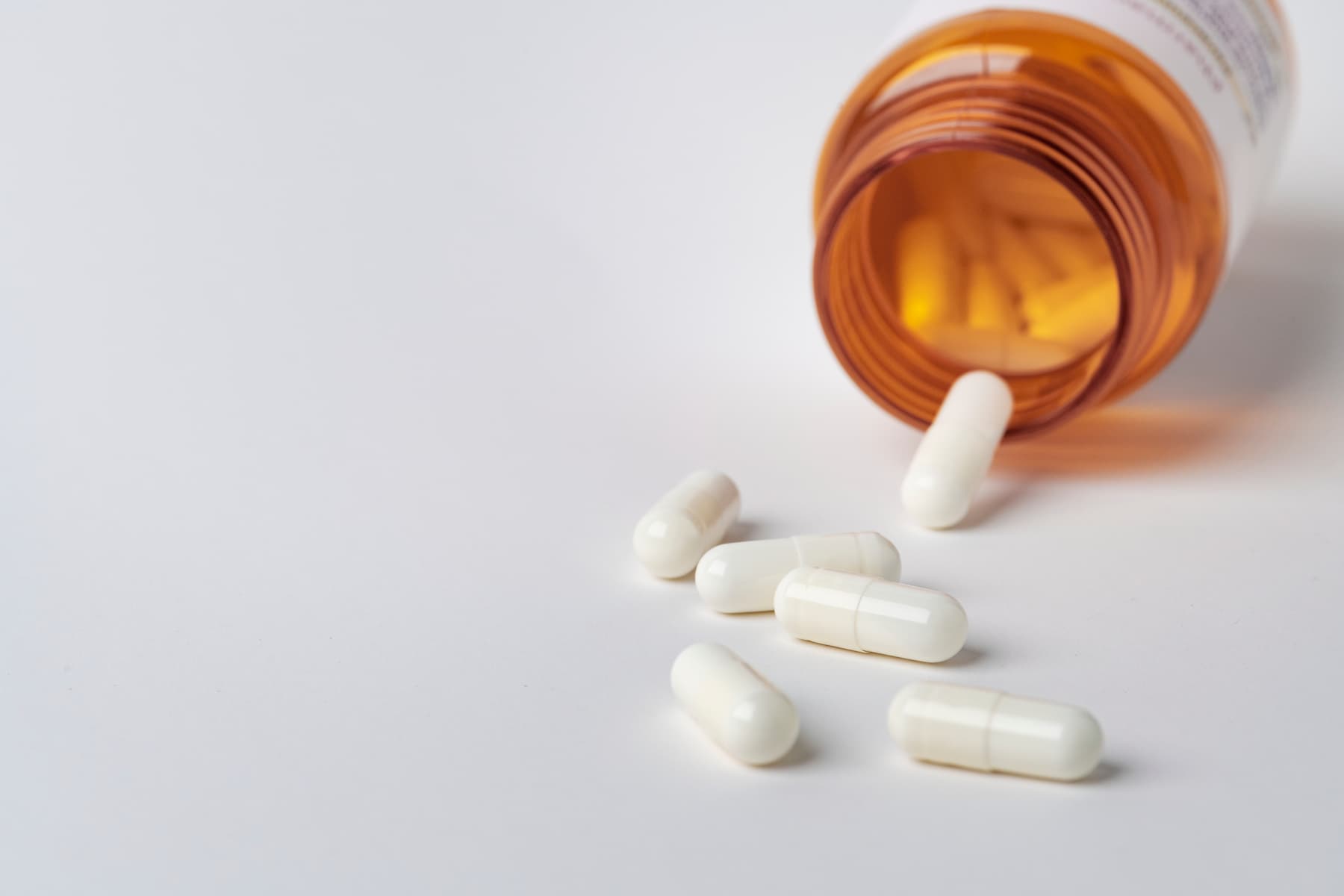
Cysteine is one of the amino acids responsible for the production of collagen.
